If a driver is causing issues on your computer, you can uninstall that driver using Command Prompt in Windows 11 via the Recovery Environment. You do not need to open the Device Manager to remove or delete a driver in Windows 11/10.
There could be times when a newly installed or updated driver might cause numerous problems, preventing you from using your computer smoothly. If your computer is lagging a lot, and you cannot open the Device Manager to uninstall that driver, you can take the help of Command Prompt to get the same thing done.
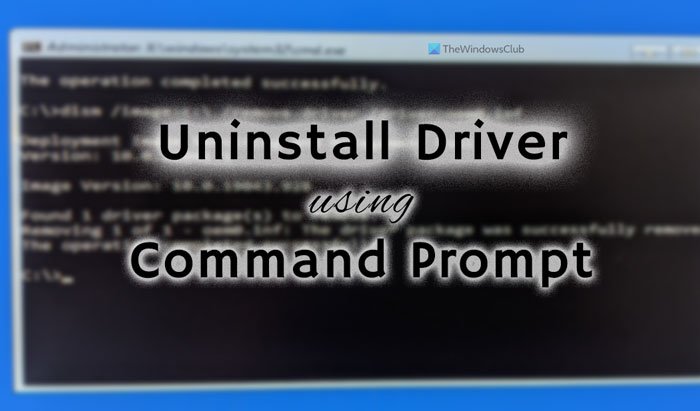
To use this method, you need to boot your computer into Recovery Environment and then use the remove-driverparameter to remove the faulty driver. There are two ways to boot your PC into Windows RE. You can use the Windows Settings method or create a bootable Windows 11 USB drive.
If you have downloaded Windows 11 ISO, you can follow this method to create a bootable USB drive. Then, you can use this bootable flash drive to open the Windows RE. For your information, you need to click on the Repair your computer option. Once you do that, the rest of the options are the same as below. This method is handy when you cannot log in to your user account or your computer freezes frequently.
How to uninstall driver using Command Prompt in Windows 11
To uninstall driver using Command Prompt in Windows 11, follow these steps:
- Press Win+I to open Windows Settings.
- Go to System > Recovery.
- Click on the Restart now button.
- Choose Troubleshoot > Advanced options > Command Prompt.
- Enter c: in the Command Prompt.
- Enter this command: dism /image:c:\ /get-drivers
- Note down the Published Name.
- Enter this command: dism /image:c:\ /remove-driver /driver:oem0.inf
If you can log into your user account but cannot open the Device Manager due to any reason, you can use the Windows Settings to boot your PC into Windows Recovery Environment. For that, press Win+I to open Windows Settings and go to System > Recovery.
Here you can find an option called Restart now, which is associated with Advanced startup options. You need to click on this button.
Your computer will boot and show a few options on your screen. You need to select the Troubleshoot option and click on the Advanced options > Command Prompt.
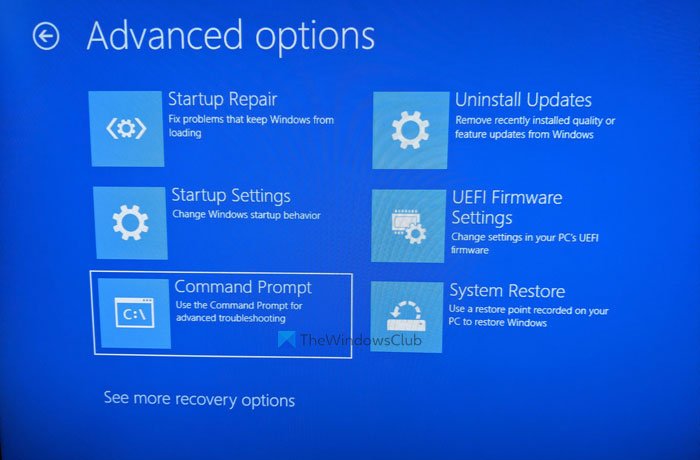
By default, Command Prompt opens with X drive mentioned. You need to switch to the drive where your system is installed. In most cases, it is the C drive. If it is the same as yours, you can enter the following command:
C:
To confirm that, you can enter the dir command to check if the list contains the Windows folder or not. If yes, you can go ahead. Otherwise, you need to change the drive as per your Windows installation.
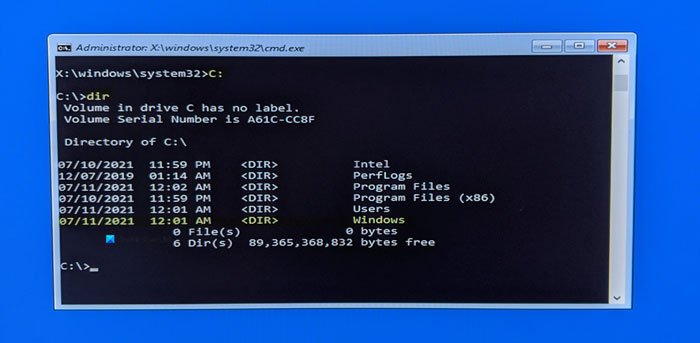
Next, you need to find the installed driver list. For that, enter this command:
dism /image:c:\ /get-drivers
Don’t forget to replace c with the original system drive.
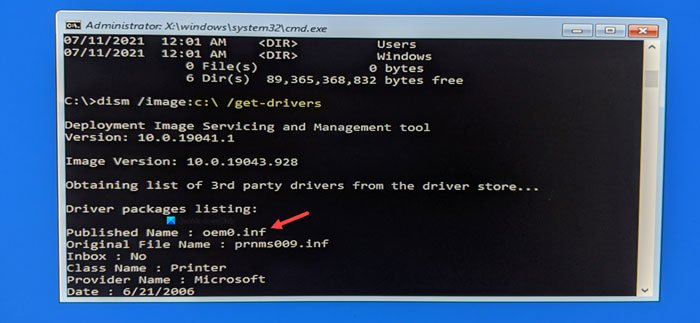
After entering this command, it displays a list of all the installed drivers. You can find various information, but the Published Name is what is needed. You need to note down the faulty driver’s Published Name and enter this command:
dism /image:c:\ /remove-driver /driver:oem0.inf
Replace oem0.inf with the original Published Name of the driver you want to uninstall.
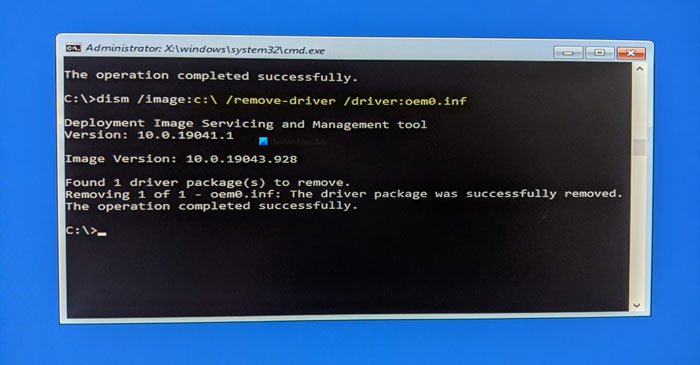
If everything goes successfully, you will get a message saying The operation completed successfully.
After that, you can repeat the same steps to remove other drivers. If you want to close this window, you can click the red cross button and restart your computer.
How do I check my drivers in Command Prompt?
To check your drivers in Command Prompt, you need to use dism /image:e:\ /get-driverinfo /driver:oem0.inf command, where oem0.inf is the Published Name of the driver. You can do that in the Windows Recovery Environment.
How do I remove drivers without opening Windows?
To remove drivers without opening Windows, you can take the help of Command Prompt and Windows RE. The remove-driver parameter lets you remove or uninstall drivers from the Windows Recovery Environment.
Hope this guide helped you remove drivers using Command Prompt.
Leave a Reply